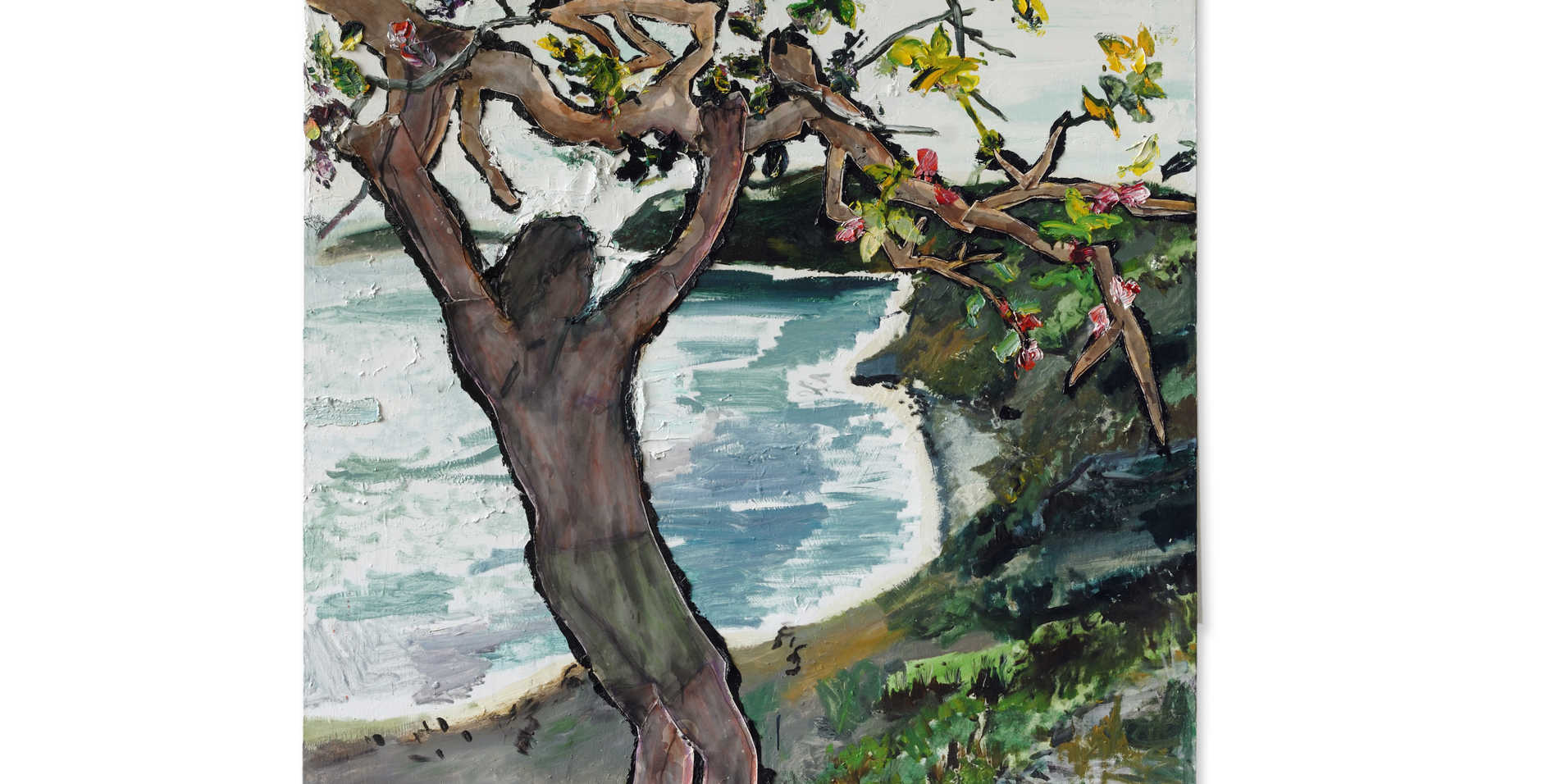Darius Yektai: On Country Ground at Tripoli

Darius Yektai’s current exhibition at Tripoli Gallery, “On Country Ground,” kicks off the summer season with a group of six large paintings, bathed in brilliant blues and deep, rich greens. There’s an immediate sense that Southampton-born Yektai is in touch with his natural surroundings. In these six canvases, Yektai has pared down and confronted the essentials of existence. The Boquet, (2012) is a large 96” x 72” painting, with an almost life-size solitary figure emerging from a mass of forceful brushstrokes of green, blue and black paint. It recalls running through one of our many nature preserve trails. The upper right corner and edges of the picture are painted a soft white and recognized as background, like an early-60s Joan Mitchell, while a section of the mid-left of the canvas is covered in a crisp, bright white that confronts the surface, thus interpreted as foreground. The figure sits somewhere between the two “whites,” the old and the new, potentially past and future. Stuck inside the canvas, he runs towards us on a diagonal. There’s a lot going on here, and it’s easy to see that the artist is more than a colorist. He is breaking down the picture plane, playing with depth and surface, and with his inclusion of the figure, he is also able to include movement and a hypothetical narrative.
While purely abstract works can undoubtedly capture movement, they can also leave the viewer with a longing for something more. So often we try to find recognizable images in non-objective works (just listen to the comments people make at MoMA in front of Pollock’s Number 1A). Art historians are trained not to make remarks like, “I think I see a face,” but perhaps it’s only natural to look for mirrors of ourselves; proof of our own reality.
Having studied Art History at the American University in Paris, and born into an artist family (his father is New York School Abstract Expressionist Manoucher Yektai), Darius Yektai is not unaware of the complexities of being a contemporary artist. In an age where boundaries have been broken from all angles, and, at the risk of sounding provincial, a junk pile can make headlines, working in the age-old medium of paint on canvas and embracing subject matter that (gasp!) comes close to landscape is a daring, bold move. While there currently seems to be yet another return to expressionism, figurative too, much of what is presented as art today still grabs our attention by use of disturbing imagery—an artistic cop-out. Here, with no pretense, we can enjoy the paintings and feel our spirits lifted in their presence. If art shall be taken as means of communication, then it would seem that the artist is bringing us closer to his own experience in nature. In From Tree to Sea (2011-2013), a mixed-media work, branches of a tree are made of painted paper that protrudes from the canvas, perhaps in an effort to further reach us. It brings to mind Eva Hesse’s 1966 Hang Up, whereby notions of the pictorial plane are questioned as a steel tube comes out (a few feet) from the rectangular, empty wall frame. In Yektai’s “From Tree to Sea,” a man hangs from the tree by both arms. From a few steps back, the man could also be seen as the tree trunk, supporting the branch above him. Either way, the connection between mankind and nature is literalized, as the figure looks out along the curving, tropical cove in the background.
“On Country Ground” provides a fresh example of contemporary art by an East End artist who has simultaneously placed himself in context with his expressionist predecessors and forged his own trail.
“Darius Yektai: On Country Ground” is on view at Tripoli Gallery, 30 Jobs Lane, Southampton, through June 20.



